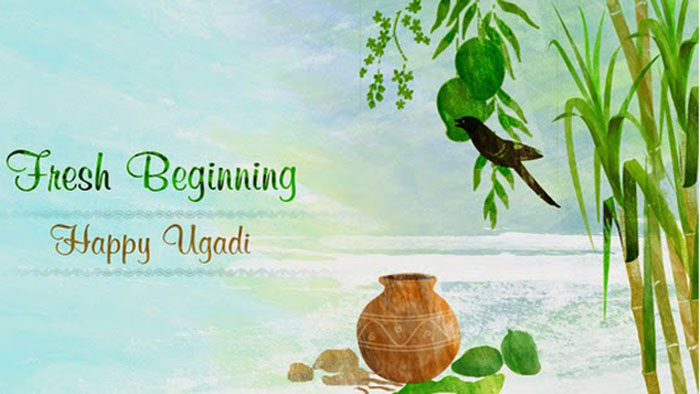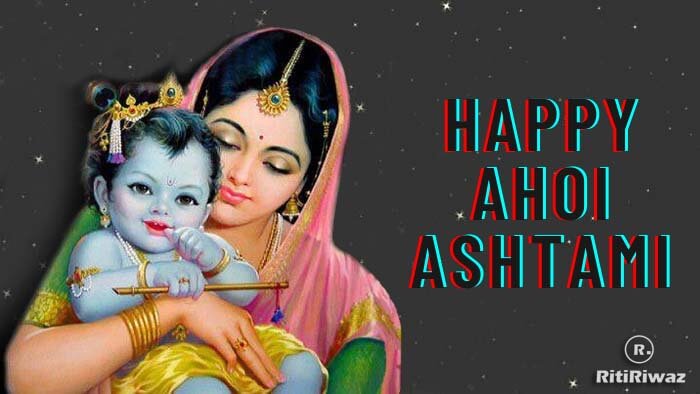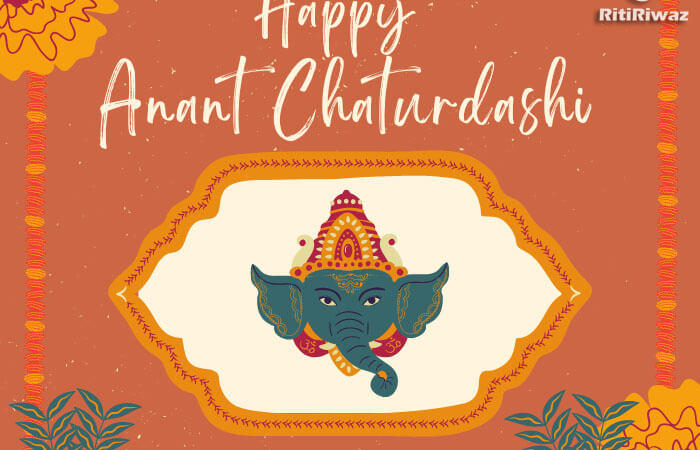Ugadi / Yugadi

Ugadi is New Year’s Day for the people of the Kannada and Telugu communities all over the world. It is a festival for people living in Andhra Pradesh, Goa, Maharashtra, and Karnataka India.
Ugadi (New Year) – Andhra Pradesh & Karnataka
Ugadi / Yugadi name is derived from two Sanskrit words Yuga and Adi, which means age ( Yuga ) and beginning ( Adi ) respectively. The Ugadi festival comes on different days each year, the festival is based on the calendar of the Lunar calendar.
In 2024 it falls on April 9th (Tuesday).
This festival is mainly celebrated by the Telugu, Telangana, Kannada, Marathi, Kodava, and the Konkani diaspora in Karnataka, Andhra Pradesh, Telangana, Maharashtra, Goa, Tamil Nadu, and Kerala. The day begins with ritual showers with oil, followed by prayers. The Marwari of Rajasthan celebrates the same day as their new year’s day Thapna. The Sindhis, people from Sindh, celebrate the same day as Cheti Chand, which is the beginning of their calendar year. The Manipuris also celebrate their New Year as Sajibu Nongma Panba on the same day. The Hindus of Bali and Indonesia also celebrate their new year on the same day.
Significance
It is believed that the creator of the Hindu pantheon Lord Brahma started creation on this day – “Chaitra Suddha Padhyami” or the Ugadi day. Also, the calculations of the great Indian Mathematician Bhaskaracharya proclaim the Ugadi day as the beginning of the New Year, New Month, and New day. The onset of spring also marks the beginning of new life with plants acquiring new life, shoots, and leaves. The vibrancy of life and verdant fields, meadows full of colorful blossoms signify growth, prosperity, and well-being.
With the coming of Ugadi, the naturally perfumed Jasmine’s spread a sweet fragrance, which is perhaps unmatched by any other in nature’s own creation. While large garlands of jasmine are offered to Gods in homes and temples, jasmine flowers woven in clusters adorn the braids of women.
Customs
Preparations for the festival begin a week ahead, Houses are cleaned and shopping for new clothes is done preparations are done with a lot of excitement. On Ugadi day, people wake up early before dawn and take a bath and decorate their entrance with mango leaves. The significance of tying mango leaves relates to a legend. It is said that Kartik (or Subramanya or Kumara Swamy) and Ganesha, the two sons of Lord Siva and Parvathi were very fond of mangoes. As the legend goes Kartik exhorted people to tie green mango leaves to the doorway signifying a good crop and general well-being.
People also splash fresh cow dung water on the ground in front of their house and draw colorful floral designs. This is a common sight in every household. People perform the ritualistic worship of God invoking his blessings before they start off with the new year.
Special dish Ugadi Pachadi
Ugadi Pachadi consists of six natural flavored tastes sweet, bitter, sour, spicy, tangy, and salty which reflect the fact that the great human life is with the combination of all the happiness, sadness, anger, fear, surprise, and disgust. And the Ugadi festival brings every human a great start for a bright future.
In Karnataka, a special dish called Obbattu, or Holige, is prepared. It consists of a filling (gram and jaggery/sugar boiled and made into a paste) stuffed in flat roti-like bread. It is usually eaten hot or cold with ghee or milk topping or coconut milk at some places in Karnataka. In Andhra Pradesh, a special dish called Bobbattu (Polelu) (Puran Poli) (Olga) is prepared on this occasion. This special dish is called Bhakshalu in Telangana.
Ugadi marks the beginning of a new Hindu lunar calendar with a change in the moon’s orbit. It is a day when mantras are chanted and predictions made for the new year.
Celebrate the auspicious occasion of Ugadi amidst fanfare and religious fervor, May the day bestow on you and your family members, Good Luck, healthy and happy times.






